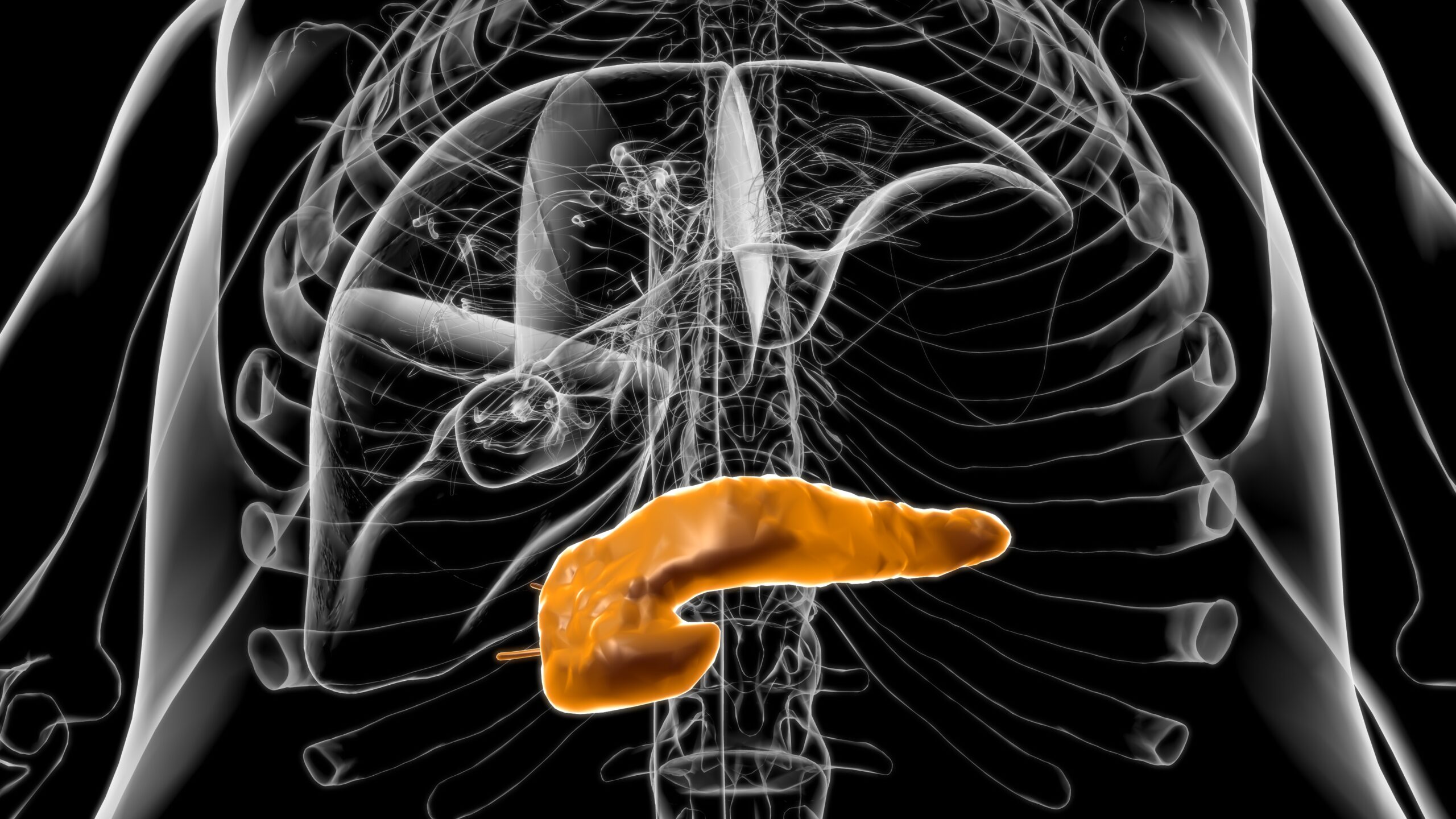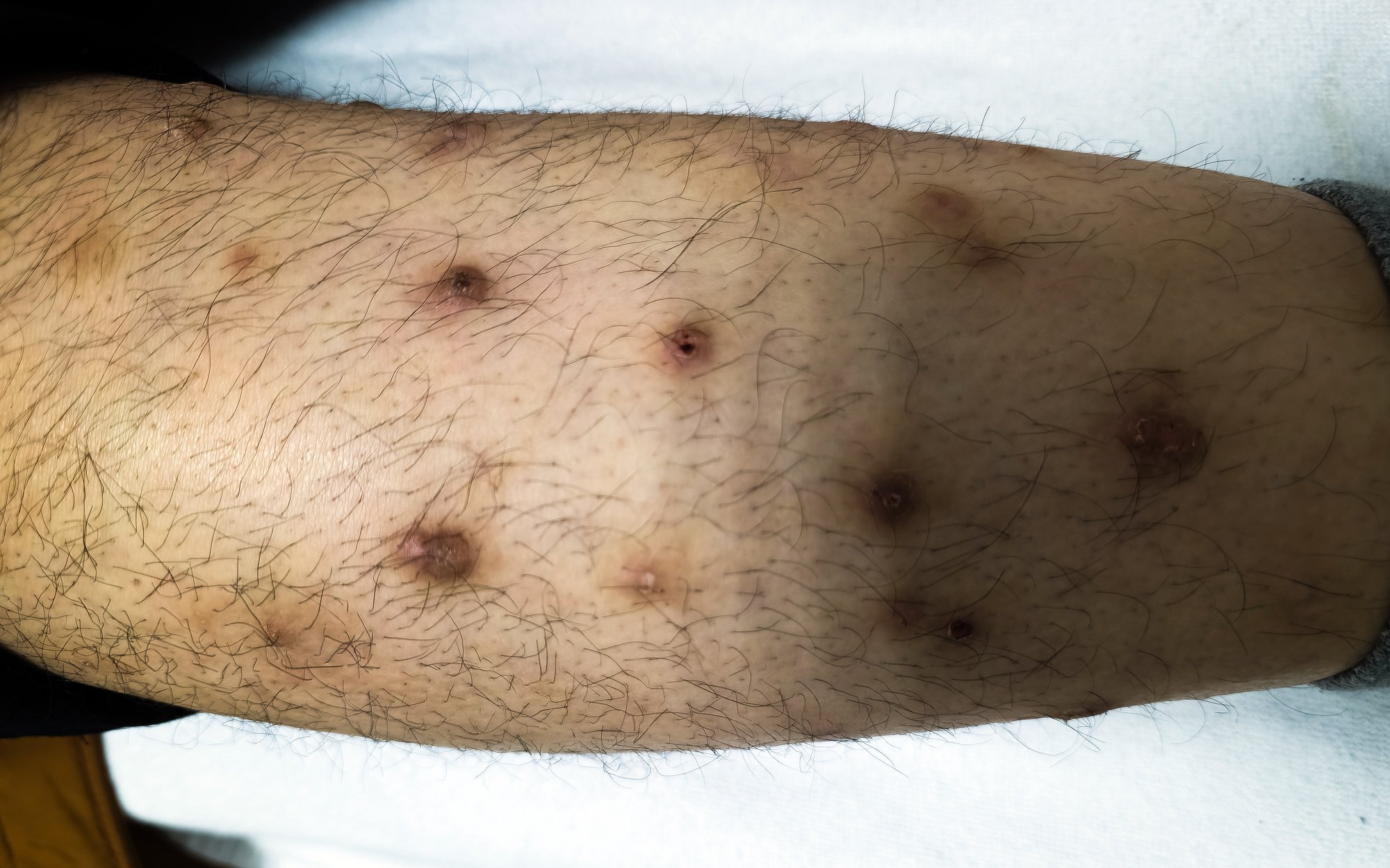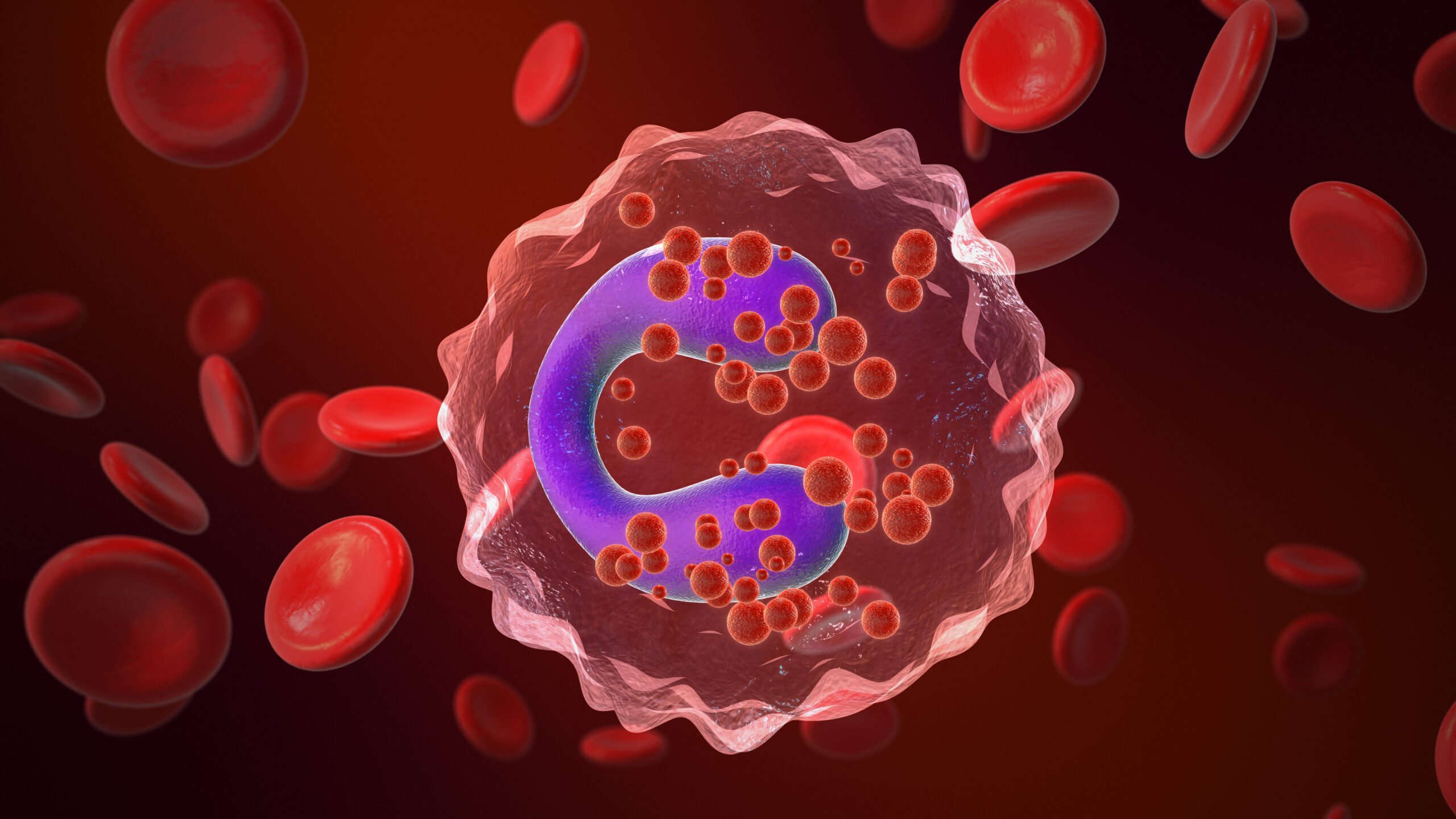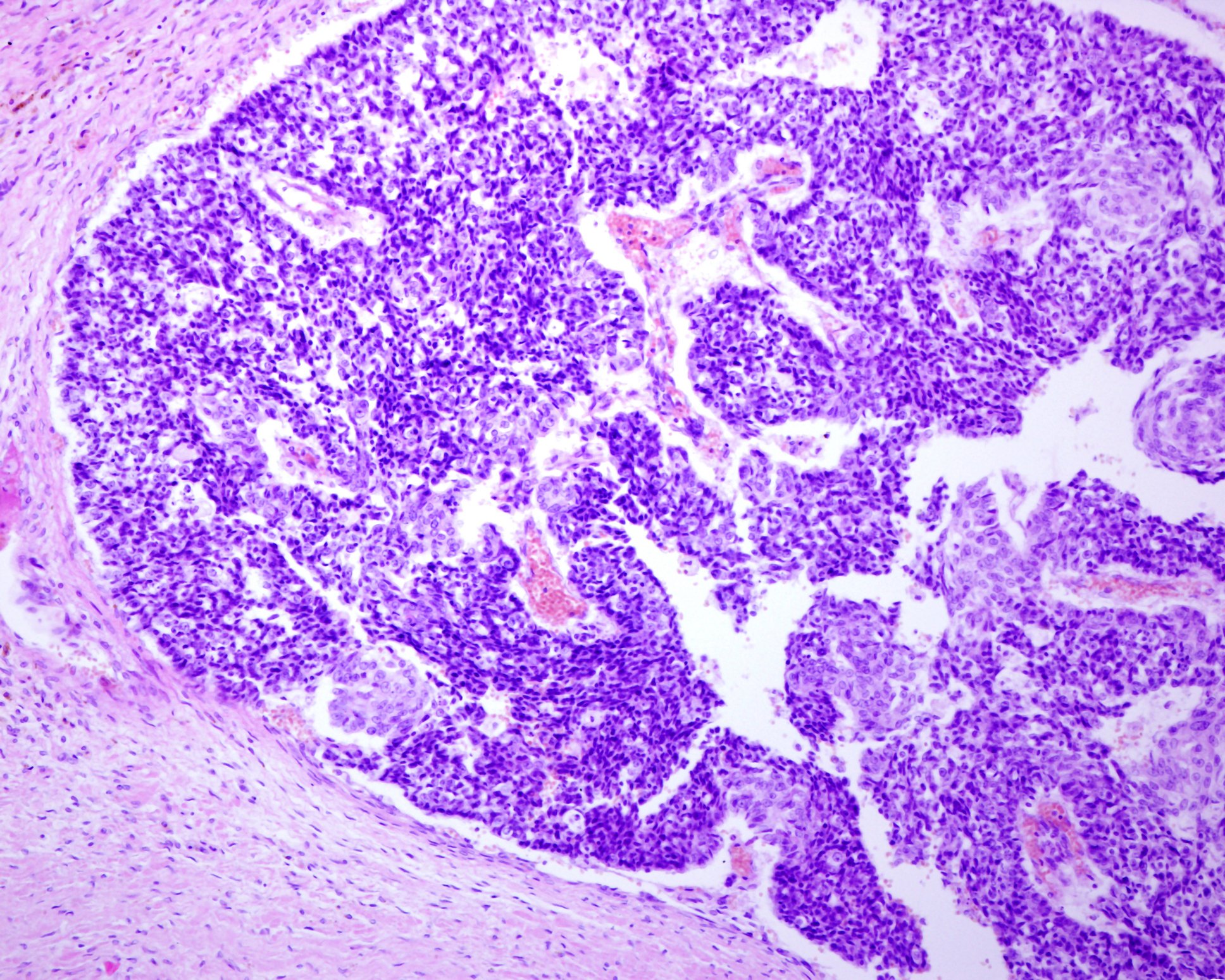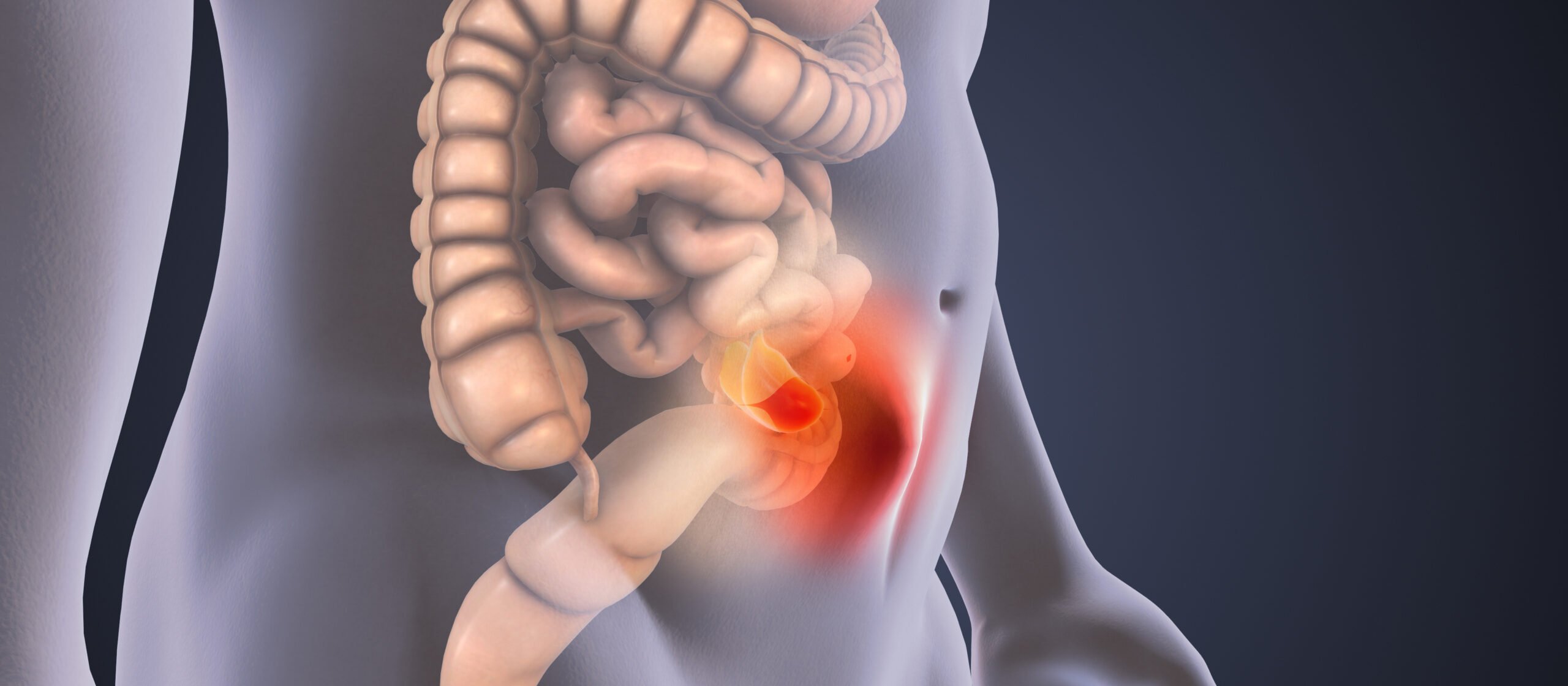For patients with relapsing-remitting multiple sclerosis (RMS), KESIMPTA® (ofatumumab) has recently become the first subcutaneous antibody-based therapy option available. In the ASCLEPIOS I and II trials, ofatumumab was shown to have superior efficacy compared with teriflunomide. The good effect was not at the expense of tolerability.
A wide range of drugs is now available to treat patients with relapsing-remitting multiple sclerosis (RMS). In daily practice, the decision for a particular therapy often represents a trade-off between high efficacy, safety/tolerability and patient comfort. A growing body of data suggests that early use of a highly effective therapy has a more positive impact on disease progression than starting with a moderately effective option and escalating therapy as disease worsens.1, 2
 Fig. 1. ASCLEPIOS I and II: Ofatumumab produced a significant reduction in annualized relapse rate (ARR).8
Fig. 1. ASCLEPIOS I and II: Ofatumumab produced a significant reduction in annualized relapse rate (ARR).8
KESIMPTA® (ofatumumab), the new option in RMS
With the fully human anti-CD20 antibody ofatumumab, a new, highly effective option is now available for the first-line treatment of RMS.3 Autoreactive CD20-positive B cells play a central role in the pathophysiology of RMS. Therefore, these cells also represent a suitable starting point for therapy. Ofatumumab binds to CD20-positive B cells and leads to cell lysis through complement-mediated and, to a lesser extent, antibody-dependent cellular cytotoxicity.4-6 Ofatumumab uses a different region of the CD20 molecule for its binding to B cells than other anti-CD20 antibodies used in MS therapy.4 Since CD20 is not expressed in early and late stages of B-cell development (stem/pro-B cells and plasma cells, respectively), pre-existing humoral immunity and the possibility of B-cell recons- titution is maintained during therapy.7
The ASCLEPIOS studies
The efficacy and safety of ofatumumab in the treatment of patients with RMS were evaluated in the two identically designed, multicenter, double-blind, active-controlled, double-dummy, parallel-group studies ASLCEPIOS I (n = 927) and ASCLEPIOS II (n = 955).8 Teriflunomide was chosen as the comparator. Included patients received a starting dose of 20 mg ofatumumab subcutaneously (s.c.) on days 0, 7, and 14, followed by a monthly maintenance dose (also 20 mg) and placebo by oral route. Maintenance therapy could be applied by the patients themselves at home. The comparison group was treated with 14 mg teriflunomide per day and placebo s.c.. The duration of the study was flexible and was a maximum of 30 months.
Superior reduction of the annual thrust rate
Both studies ultimately demonstrated that treatment with ofatumumab resulted in a significantly lower ARR (annual relapse rate) compared to teriflunomide. The overall relative reduction in ARR was 50.5% in ASCLEPIOS I (adjusted ARR: 0.11 with ofatumumab vs. 0.22 with teriflunomide; p < 0.001) and 58.5% in ASCLEPIOS II (adjusted ARR: 0.10 with ofatumumab vs. 0.25 with teriflunomide; p < 0.001) (Fig. 1). Furthermore, a planned pooled analysis of the two studies showed a significantly reduced risk of disability progression at 3 and 6 months for treatment with ofatumumab compared with teriflunomide (3 months: risk reduction of 34.4%; p = 0.002; 6 months: risk reduction of 32.5%; p = 0.012). Ofatumumab also achieved better results than teriflunomide with regard to imaging findings. Thus, there was almost complete control of Gd-positive T1 lesions (relative reduction of 97.5% in ASCLEPIOS I and 93.8% in ASCLEPIOS II; both p < 0.001) and superior reduction of T2 lesions compared with teriflunomide. Neurofilament light chain (NfL) levels consistently and significantly decreased in both studies with ofatumumab compared with teriflunomide. The first significant difference was already detectable at the first measurement point, after a treatment period of 3 months. Fig. 2. effect of ofatumumab on NEDA-3 (post-hoc analysis of ASCLEPIOS I and II).10 OR: odds-ratio
Fig. 2. effect of ofatumumab on NEDA-3 (post-hoc analysis of ASCLEPIOS I and II).10 OR: odds-ratio
Nearly nine out of ten patients with NEDA-3
One of the goals of successful MS treatment is to achieve NEDA (No Evidence of Disease Activity).9 Here, NEDA-3 is defined by the absence of relapses, disability progression, and radiographic activity. As a post-hoc analysis of the two ASCLEPIOS studies showed, the chance of achieving NEDA-3 was more than 3-fold higher in the first year of treatment with ofatumumab than with teriflunomide and as much as 8-fold higher in the second year of treatment (Fig. 2).10 In the first year of treatment, nearly 5 out of 10 patients on ofatumumab achieved NEDA-3. By the second year of treatment, this was true for nearly 9 out of 10 patients.
Good side effect profile
That the good efficacy of ofatumumab is not at the expense of tolerability was shown by the analysis of side effects registered in the two ASCLEPIOS studies.8 Overall, adverse events occurred in 83.6% of patients treated with ofatumumab and 84.2% of patients treated with teriflunomide. Serious events were recorded in 9.1% and 7.9% of patients, respectively. Injection-associated reactions were most common. They occurred in 20.6% of patients in the ofatumumab arm and 15.3% of patients in the teriflunomide arm. Systemic reactions to injection were mild or moderate in 99% of cases. They occurred mainly with the first injection and decreased significantly with subsequent applications. Infections were recorded in 51.6% of ofatumumab patients and 52.7% of teriflunomide-treated patients. Nasopharyngitis (18% ofatumumab, 16.7% teriflunomide), upper respiratory tract infections (10.3% vs. 12.8%), and urinary tract infections (10.3% vs. 8.3%) were most common. The mean IgG/ IgM levels of ofatumumab-treated patients were always within the reference range and comparable to those in the teriflunomide group. Permanent discontinuation of therapy occurred in 5.7% of patients treated with ofatumumab and 5.2% with teriflunomide.
Conclusion
A growing body of data suggests that early use of highly effective therapy has a more positive impact on disease progression than escalation of therapy when needed.1,2 However, highly effective therapies are often associated with a limited safety profile. As the data from the two ASCLEPIOS studies were able to show, ofatumumab combines high efficacy with a favorable side effect profile. Hospitalization, premedication, and monitoring are not required for ofatumumab injections. Therefore, once therapy is initiated, patients can easily self-apply KESIMPTA® under the supervision of a healthcare professional, once a month using a subcutaneous auto-injector pen. The good benefit-risk profile and ease of use of KESIMPTA® thus allow early use in patients with RMS.
This article was realized by Novartis Pharma Schweiz AG, Suurstoffi 14, 6343 Rotkreuz, Switzerland





